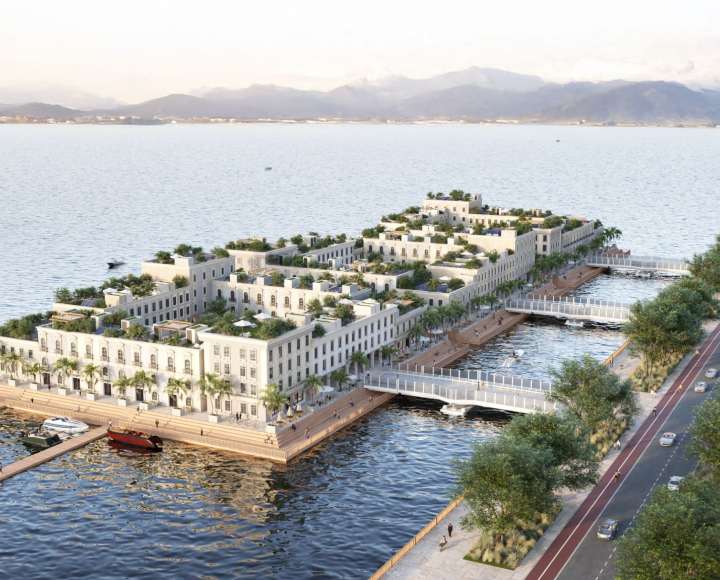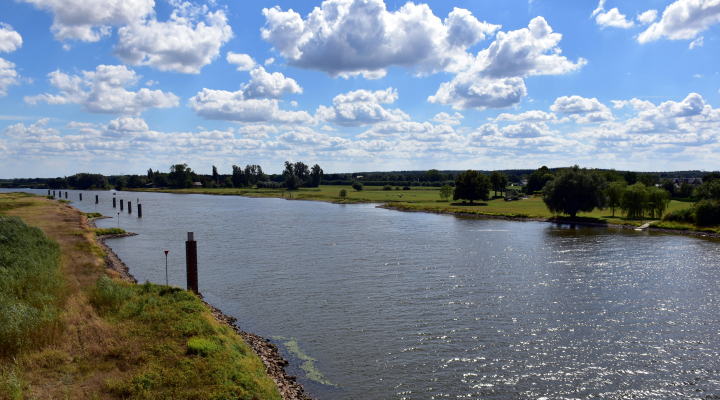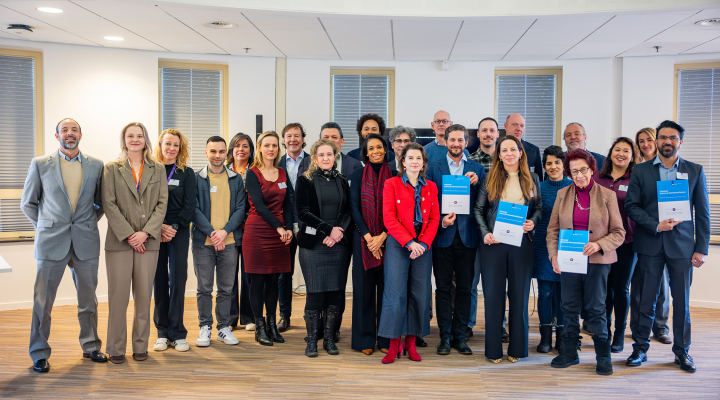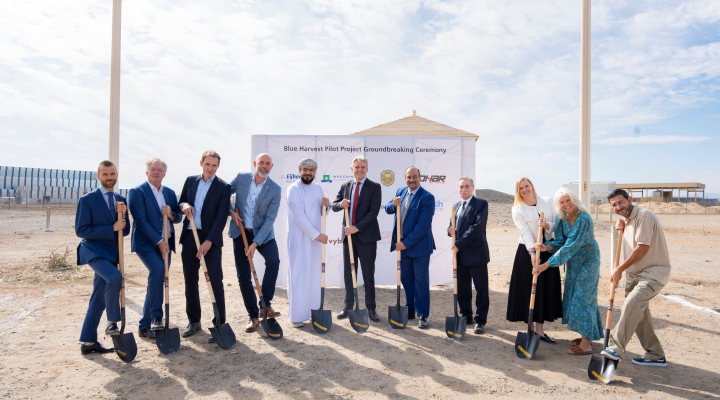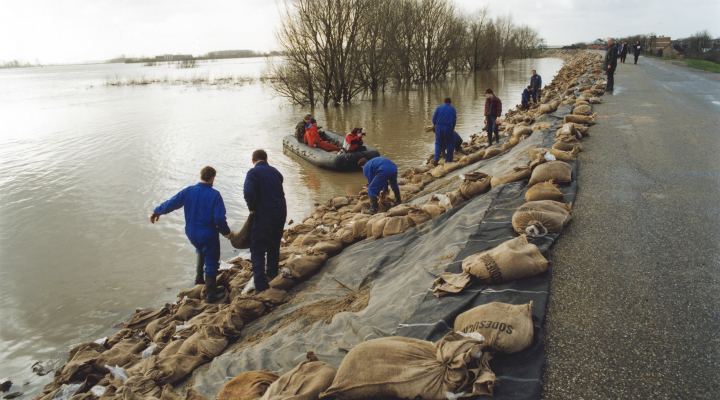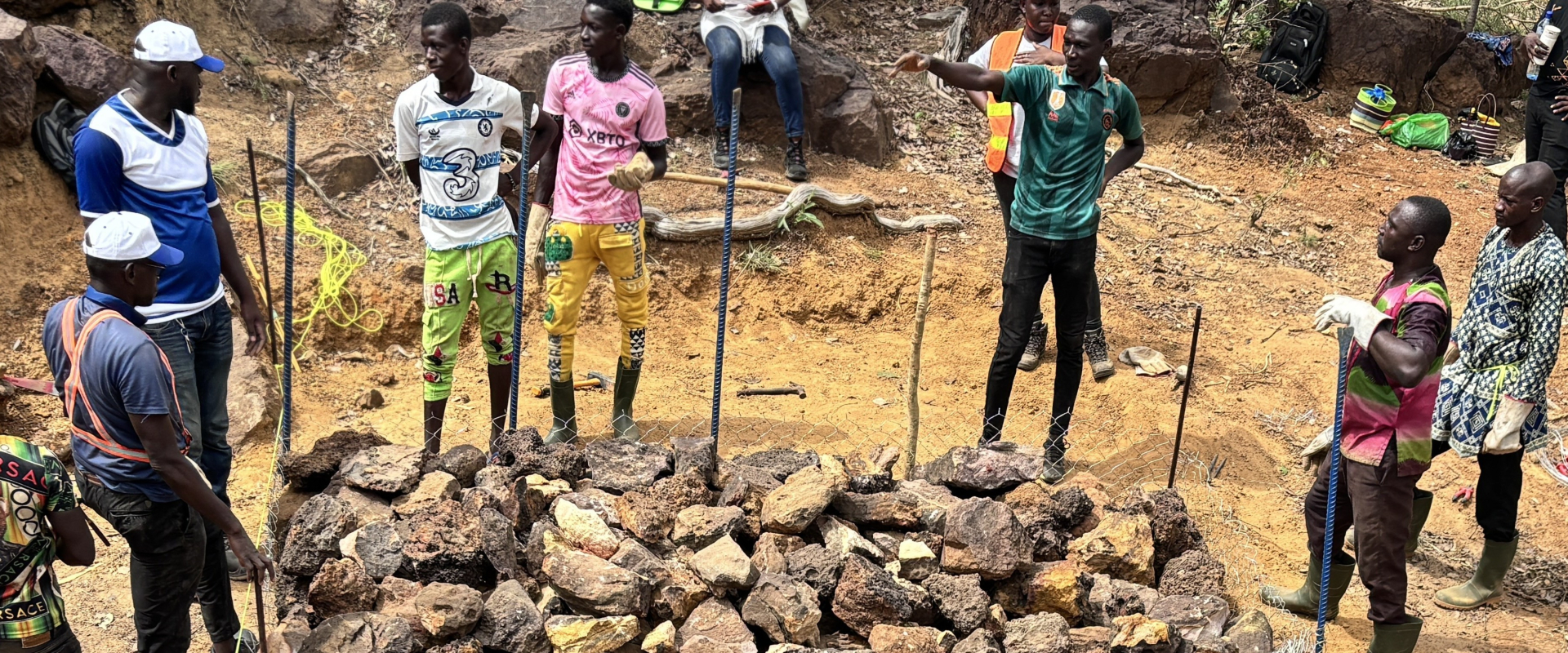
Water as a lifeline: Tackling desertification in Burkina Faso through local partnerships and the 3R approach
Desertification is one of the most pressing environmental and socio-economic challenges in the Sahel region. In Burkina Faso, World Waternet and its partners are supporting climate-resilient water management through the ECDD-GIRE programme, placing local communities at the heart of the solution. By applying the 3R approach – Retention, Recharge and Reuse – the project helps restore degraded land and strengthen resilience against climate change.
Working with communities, not just for them
In close collaboration with eight Local Water Committees (CLEs) and five regional water agencies, the Dutch-led consortium – World Waternet, Agriterra and AUXFIN – empowers communities to co-design and implement solutions tailored to their specific needs. From rural households to farmers' cooperatives and Water User Committees, the project builds local ownership of sustainable water and land management.
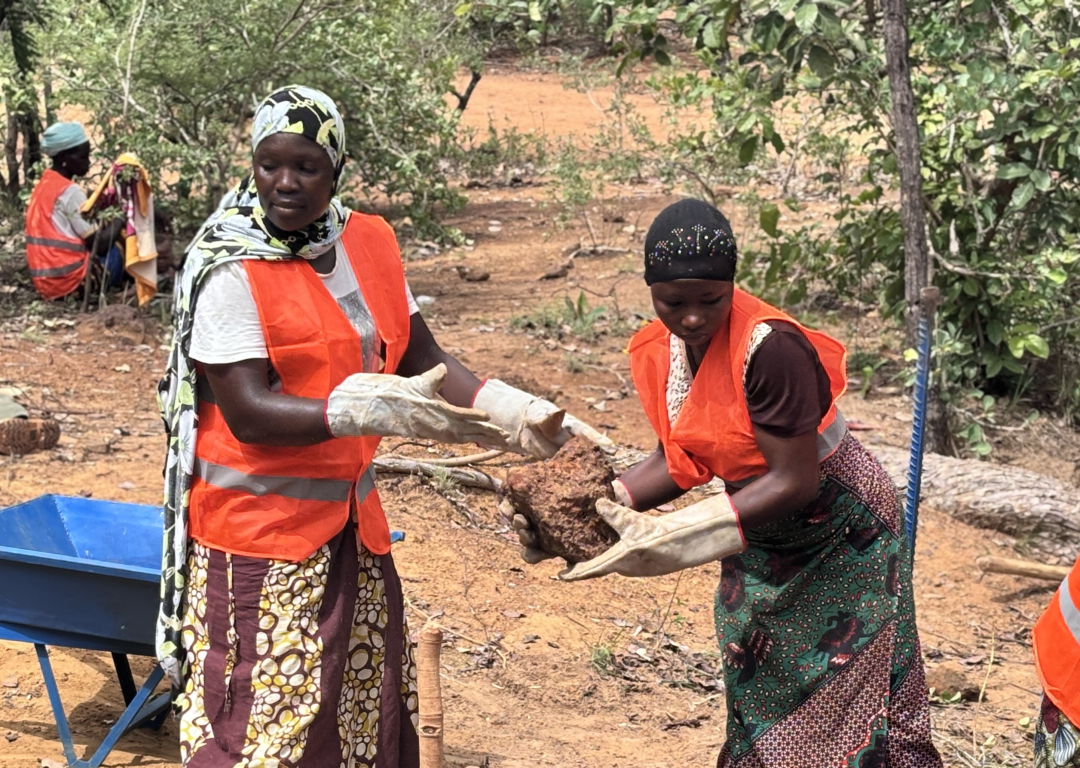

Desertification is not just about sand
Burkina Faso, a semi-arid country in the heart of the Sahel, faces severe land degradation due to climate change, population growth and unsustainable land use. With over 9 million hectares of degraded land, agriculture – the main source of livelihood – is under serious threat. Yet despite national efforts to restore 5 million hectares by 2030, progress remains slow, partly due to lack of long-term funding and limited community involvement in project design.
The 3R principle: nature-based and locally rooted
The 3R approach strengthens natural systems and supports sustainable land use:
- Recharge: structures like stone bunds, zaï pits and half-moons capture rainfall, enhance infiltration and reduce erosion.
- Retention: simple rainwater harvesting basins store water for use during the dry season.
- Reuse: encouraging multiple uses of available water helps improve efficiency and reduce pressure on limited resources.
Combined, these techniques restore soil health, increase agricultural productivity and reduce vulnerability to climate extremes.
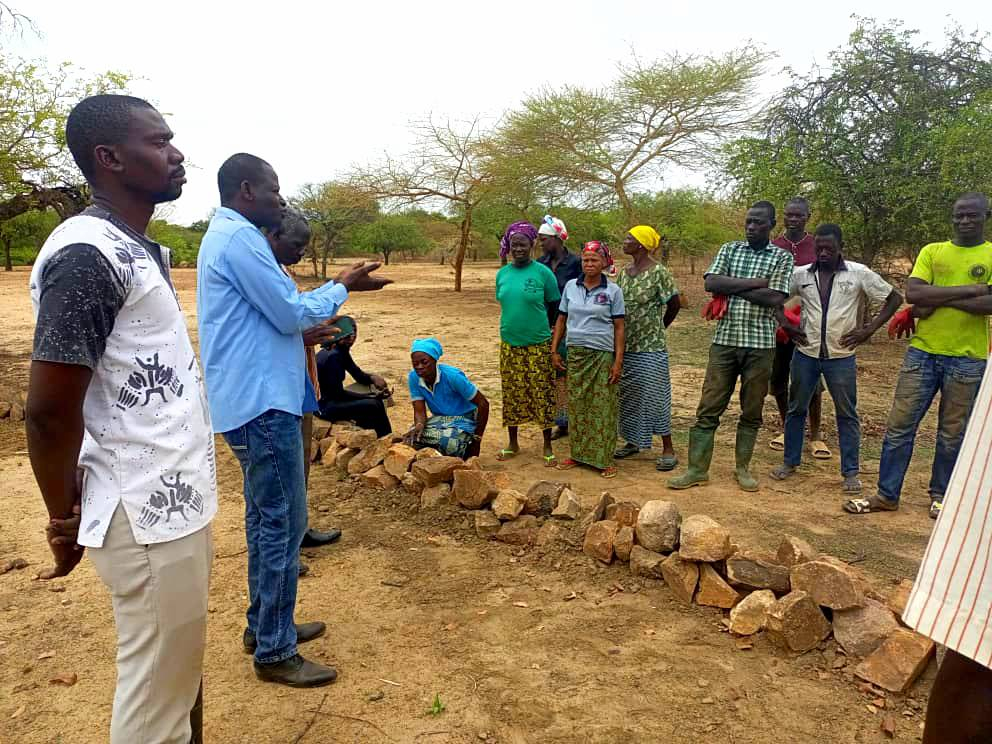

Local action, lasting results
In Dori, with the support of the Liptako Water Agency, women have planted Euphorbia Balsamifera to stabilise sand dunes and protect farmlands and homes from encroaching desert sands. Despite its modest appearance, this drought-resistant plant is highly effective in reducing erosion and reclaiming degraded landscapes.
Further west, in Douna, members of the Local Water Committee, trained by the Cascades Water Agency, have built filter dikes using locally available materials. These structures retain rainwater, trap sediment and improve groundwater recharge – practical, low-cost solutions that communities can build and maintain themselves.
Stewardship, not short-term fixes
Combatting desertification demands more than isolated interventions. It requires long-term commitment, local stewardship and integrated water governance. Through continued collaboration with Local Water Committees and regional water agencies, the ECDD-GIRE project is scaling up efforts across the Sahel – including the development of five hectares within Ouagadougou’s green belt.
A greener Sahel through partnership
By aligning nature-based solutions, local knowledge and digital innovation, the project not only restores land but also builds the capacity of communities to manage water sustainably. In partnership with Agriterra and AUXFIN, it also supports climate-smart agriculture and the digitalisation of best practices to ensure long-lasting impact.
The original text is published on World Waternet’s website.




